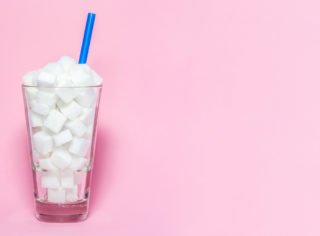Neurotoxins are substances that hinder the electrical activity of nerves within the body. They prevent them from functioning properly by either over-stimulating them to death or by interrupting their communication process. Due to their impact on nerve cells, neurotoxins have been linked to brain disorders and neurodegenerative diseases such as Alzheimer’s, Huntington’s and Parkinson’s. They can also cause serious symptoms such as migraines, insomnia, asthma, depression, anxiety, and aggression. Also, as their bodies and brains are still developing, children are the most vulnerable to neurotoxins.
Although neurotoxins can be found in conventional cleaning products, air fresheners, vaccinations, and tobacco smoke, the majority of neurotoxins that make their way into our bodies can be traced back to the foods we eat. Moreover, as a result of the increase in the processing of foods, the availability of neurotoxins has noticeably increased. Some of them are continuously used as an additive in foods by junk food industries as they add more flavor to the food, causing you to crave more. It may seem impossible to completely avoid neurotoxins, but by educating yourself you can ensure the health and safety of both you and your loved ones. Read on to find out more about the most common neurotoxins.
Common Neurotoxins To Avoid
Bisphenol A (BPA)
BPA is a chemical that’s commonly found in plastic containers, bottled water, and the coating of most food and drink cans. BPA can leak out of the containers and into foods. Once BPA enters the body, it can mimic the effects of estrogen which can disrupt normal hormonal function. Moreover, studies have linked high levels of BPA in the body to health issues such as breast and prostate cancer, metabolic disorders, type 2 diabetes, and infertility. In hopes of reducing your BPA exposure, be sure to reduce your consumption of canned foods as well as opting for BPA-free bottles and containers.

Photo by Calle Macarone on Unsplash
Mercury
The list of benefits that come with consuming fish is long, especially since they are rich in omega-3 fatty acids and other vital nutrients. However, over-consumption of the wrong fish can result in mercury poisoning. Being a neurotoxin, high levels of mercury in the body can result in muscle weakness, vision changes, tremors, visual disturbances, and hearing loss. Pregnant women need to be conscious of their mercury intake as neurotoxin can affect the brain development of the fetus.
The consumption of seafood is the most common way people are exposed to mercury. Once the mercury is in the air, it finds its way into bodies of water. Plants that grow in mercury-contaminated waters are consumed by small fish, which are then consumed by bigger fish. Over time, mercury accumulates in the bodies of larger fish, which are then eventually consumed by humans. Another thing you should watch out for is low-mercury fish, read all about it here on how it can harm your body.
As it’s nutritionally vital to consume fish, one needs to make sure that they avoid fish that are rich in mercury. These include orange roughy, shark, swordfish, marlin and sea bass. Fish that are low in mercury (and quite high in omega-3s) include salmon, sardines, herring, flounder, and haddock. If you’re a big fan of tuna, limit your intake to no more than two servings per week, with pregnant women eating even less.
Diacetyl
Although fans of microwave popcorn may not know about this neurotoxin, they’ve regularly ingested it. Diacetyl is a neurotoxin that’s released into the air from the artificial butter flavoring during popping. Diacetyl can cause beta-amyloid clumping which is a significant precursor to Alzheimer’s disease. Long-term diacetyl exposure can also affect the health of your airways which can result in lung disease bronchiolitis obliterans. In addition to cooking your popcorn on the stove, stay clear of any packaged foods that contain artificial butter- simply opt for natural butter.
Aspartame
 A common artificial sweetener (also known as a high-intensity sweetener) that can be found in diet sodas and processed foods. This particular sweetener is created from the fecal matter of genetically modified bacteria. When you realize how it’s created, it’s no wonder that the sweetener has been linked to health problems such as diabetes, migraines, kidney failure, seizures, blindness, obesity, and anxiety.
A common artificial sweetener (also known as a high-intensity sweetener) that can be found in diet sodas and processed foods. This particular sweetener is created from the fecal matter of genetically modified bacteria. When you realize how it’s created, it’s no wonder that the sweetener has been linked to health problems such as diabetes, migraines, kidney failure, seizures, blindness, obesity, and anxiety.
Sucralose
Sucralose is another artificial sweetener (commonly known as Splenda) that is found in sugar-free products. It is a sugar that has bonded with chlorine. It was accidentally discovered during a research program aimed at creating a new insecticide. When the body breaks sucralose down, it releases toxic chemicals. The health effects of this release include peripheral nerve damage, headaches, migraines, dizziness, brain fog, anxiety, and depression. According to one study published in the Journal of Toxicology and Environmental Health, sucralose can hinder the absorption of nutrients as well as reduce the number of good bacteria in the intestine. A great alternative for natural sweeteners is stevia. It’s not as heavily processed as other sweeteners, and it can also be used by diabetics.
MSG (monosodium glutamate)
MSG is a neurotoxin that can be found in just about everything. This includes junk food, processed food, fast food, restaurant food, canned food, pet food, and even baby food. Although it can be found in almost anything, the FDA does not require that it be disclosed on labels. It should only be listed if it is 100% pure MSG. Thus flavorings and spices that contain up to 99% MSG don’t need to be identified on the label, although the food is salty to the taste, it more than likely contains MSG.
MSG is used to enhance the flavor of food. However, it also stimulants appetite, leaving you with a constant craving for food. Aside from causing overeating, MSG can also cause headaches, nausea, mood swings, insomnia, diarrhea, and seizures. It’s also been linked to Alzheimer’s and Parkinson’s disease. As the public continues to inform itself about MSG, it is often hidden in ingredient labels under alternative names. These names include hydrolyzed or vegetable protein, plant protein extract, sodium caseinate, calcium caseinate, yeast extract, textured protein, TVP, autolyzed yeast, carrageenan, malt extract, malt flavoring, bouillon, seasonings, spices, and natural flavoring.
It can be difficult to stay clear of foods that contain neurotoxins. However, your health, as well as that of your family, always comes first. Be sure to stay vigilant when it comes to reading food labels. You should also increase your intake of fresh organic foods.



![women [longevity live]](https://longevitylive.com/wp-content/uploads/2020/01/photo-of-women-walking-down-the-street-1116984-100x100.jpg)










